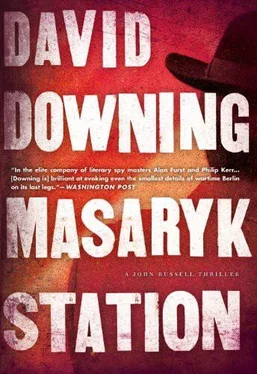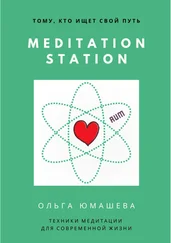David Downing - Masaryk Station
Здесь есть возможность читать онлайн «David Downing - Masaryk Station» весь текст электронной книги совершенно бесплатно (целиком полную версию без сокращений). В некоторых случаях можно слушать аудио, скачать через торрент в формате fb2 и присутствует краткое содержание. Год выпуска: 2013, ISBN: 2013, Издательство: Soho Press, Жанр: Шпионский детектив, на английском языке. Описание произведения, (предисловие) а так же отзывы посетителей доступны на портале библиотеки ЛибКат.
- Название:Masaryk Station
- Автор:
- Издательство:Soho Press
- Жанр:
- Год:2013
- ISBN:9781616952228
- Рейтинг книги:4 / 5. Голосов: 1
-
Избранное:Добавить в избранное
- Отзывы:
-
Ваша оценка:
- 80
- 1
- 2
- 3
- 4
- 5
Masaryk Station: краткое содержание, описание и аннотация
Предлагаем к чтению аннотацию, описание, краткое содержание или предисловие (зависит от того, что написал сам автор книги «Masaryk Station»). Если вы не нашли необходимую информацию о книге — напишите в комментариях, мы постараемся отыскать её.
Masaryk Station — читать онлайн бесплатно полную книгу (весь текст) целиком
Ниже представлен текст книги, разбитый по страницам. Система сохранения места последней прочитанной страницы, позволяет с удобством читать онлайн бесплатно книгу «Masaryk Station», без необходимости каждый раз заново искать на чём Вы остановились. Поставьте закладку, и сможете в любой момент перейти на страницу, на которой закончили чтение.
Интервал:
Закладка:
Looking at the boxes started her thinking about how they were going to view the one in question. They could take Merzhanov’s film to one of the studios she’d worked at over the years and persuade a technician to let them watch it-minor celebrity status could move such minor mountains-but ensuring privacy would probably prove more difficult. The technician would want to work the projector; would, in fact, be the only one there who knew how. And even if he could be bribed into setting things up and leaving them to it, they could hardly lock themselves inside a screening room without raising all sorts of questions. No, it wouldn’t do. They would have to hang a white sheet on the wall the way Cisar had, and somehow get hold of their own projector.
But from where? Resisting the temptation to make another coffee, Effi sketched out a list of possible sources and started making calls. None of her first respondents had one, but most had suggestions as to where one might be found, and an hour or more into her search she finally struck gold. There was a company in Wedding that hired out projectors-there was, it seemed, a booming trade in private showings of pornographic shorts. The Russians and French were particularly enamoured, her informant told her; the Brits and Americans much more prudish.
After ringing the shop, and hearing that it did have the appropriate equipment for hire, Effi took the U-Bahn to Muller Strasse and walked the short distance to the address she’d been given. The sign above the window was for a butcher, but once inside the premises the only flesh on display was human. Someone had been enlarging stills from pornographic movies. A sales pitch, Effi realised, both legal and enticing-the scraps of cloth being worn in the photos were doubtless removed in the films.
Inside, a youth of around twenty was surrounded by film equipment of various types and vintage. He seemed ill at ease, a state Effi attributed to an unfamiliarity with real women. Knowing she badly needed his help, she set out to reassure him, presenting herself as a potent combination of motherly concern and female hopelessness in the face of machinery. After modestly admitting that she had made some films herself-‘several years ago now,’ she added wistfully-she took one of her audition reels out of her bag. ‘I want to show some films like this to a few friends at home,’ she said innocently. ‘Do you have the right projector? And if you do, could you teach me how to work it?’
He did and he could. They went through the process twice together, Effi coyly stopping the film each time the opening frames appeared on the wall, and trying not to notice how keen he seemed to sniff her hair. Once certain she knew how to work the projector, she paid a week’s hire, and left him to box it up. Outside on Muller Strasse the wait for a cab seemed endless, but when one eventually came the youth carefully placed it on the seat beside her, and raised a hand in nervous farewell.
Back at Carmer Strasse a neighbour helped her carry it in, and when Rosa came home from school, they watched one of the audition reels together. Every now and then the girl would turn her eyes from the screen Effi to the one sat beside her, just to check they were one and the same.
Around six, they walked over to Zarah’s. Lothar and Bill Carnforth was there already, and after dinner the five of them played skat. They had the radio playing low in the background, and they almost missed the transition from soothing music to worrying news: The Allies had announced a currency reform. From midnight on the following Sunday the old Reichsmark would no longer be legal tender. Initially, at least, the change would only apply to the British, French, and American zones, and not to their sectors in Berlin; but Bill was convinced it was only a matter of time.
And so, apparently, were the Soviets. Each time the news was repeated, it came with fresh hints of a Russian response, and at midnight it was finally made official-all rail and road passenger traffic between Berlin and the Western zones had been summarily halted. By this time Rosa was fast asleep, whereas Effi, like hundreds of thousands of other Berliners, was much more awake than she wanted to be, staring blankly at the radio, waiting for someone to say something hopeful.
Russell picked up the news at Rhein-Main on the Saturday morning. He had known something was up from the moment he arrived at the sprawling airbase as both people and planes seemed to be charging around like headless chickens. At one spot on the edge of the tarmac a surreal pile of passenger seats had accumulated, torn out, he later realised, to make more room for supplies.
Did the Western Allies really think they could sustain their Berlin sectors by air? They might be able to fly in enough food, but how would Berliners cook it? How would they heat their homes? The Soviets only had to cut off the fuel supplies to the power stations, and that would be that. And if, as seemed increasingly likely, they really meant business this time, then that was exactly what they would do. How could the Allies fight them? With coal planes?
That morning they seemed reluctant to increase Berlin’s population by even one-Russell needed a phone call from BOB to secure him passage in the belly of a C-47, jammed between sacks of flour and potatoes. And if the physical discomfort was bad, the stress of listening to the two young pilots imagine Soviet fighters behind every approaching cloud was even worse. After listening to that for an hour, Russell was almost wishing that the Russians would shoot them down.
He got back to Carmer Strasse early that afternoon. Effi and Rosa returned from the park a little bit later, and while Rosa was using the toilet he asked Effi if she’d watched the film. ‘No,’ she told him, ‘I was waiting for you.’
He felt strangely reluctant to watch it himself, more because it felt like another burnt bridge than because of its probable content. ‘Let’s both wait for Shchepkin,’ he suggested. ‘Before I left, we arranged a meet for tomorrow-I can bring him straight back here. If Zarah can take Rosa, that is.’
‘We were all going to see The Wizard of Oz ,’ Effi said wistfully. ‘I suppose I’ll have to feel unwell.’
That evening the three of them went in search of a slap-up dinner on Ku’damm. There were many others doing the same, either drawn out by the sense of gathering crisis or simply intent on spending their Reichsmarks while they could. The authorities still held that the currency reform didn’t apply to the city, but few Berliners were confident of things remaining that way, and already some restaurateurs were only accepting payment in dollars. Small rows were breaking out up and down boulevard, with would-be customers insisting that their money was still legal tender, and proprietors just as certain that it wouldn’t be for very much longer.
Russell’s dollars secured them a table in a recently re-opened bistro, long renowned for its pfifferling mushrooms. Though now supplied by an entrepreneurial Red Army unit, they were still delicious. Sitting, eating, chatting-the evening passed more than pleasantly. A last chance to breathe easily, Russell thought, because the minute Beria knew they had the film everything would change, for better or for worse.
Rosa was smiling at him. He could see how happy his daughter was that they were all together again, and for a moment he felt almost overwhelmed by the enormity of the risk they were taking. With evenings like this still possible, how could he say that the old life couldn’t be sustained?
But it couldn’t, he knew it couldn’t. Sooner or later a juggler dropped a ball, and Russell’s arms felt more tired by the week. Life was a risky business, and one needed wisdom about choosing which risks to take. And this opportunity did seem to offer a huge reward-to all of them-at a relatively low risk. In the end, it was a miracle that any one of them had survived the war, let alone all three. Maybe fate had them under its wing, he thought.
Читать дальшеИнтервал:
Закладка:
Похожие книги на «Masaryk Station»
Представляем Вашему вниманию похожие книги на «Masaryk Station» списком для выбора. Мы отобрали схожую по названию и смыслу литературу в надежде предоставить читателям больше вариантов отыскать новые, интересные, ещё непрочитанные произведения.
Обсуждение, отзывы о книге «Masaryk Station» и просто собственные мнения читателей. Оставьте ваши комментарии, напишите, что Вы думаете о произведении, его смысле или главных героях. Укажите что конкретно понравилось, а что нет, и почему Вы так считаете.












